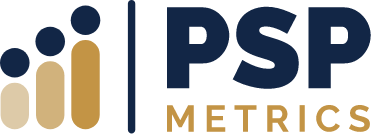How to Design a Successful Employee Hiring Process
Predicting successful people is a difficult task: there is no silver bullet for making the job easier. It is a complex decision with many dynamic variables to get right. Based on the experience of our industrial psychologists over the last 65 years, we have identified the factors least likely to predict success:
- Job knowledge and experience.
- Knowing the ‘‘right people’’.
- Having the ‘‘right education’’.
- Saying all the ‘‘right’’ things in the interview.
The main reasons why new hires fail:
- Poor listening skills.
- Lack of interpersonal skills.
- Weakness in leading a team.
- Inability to adapt to change.
- Lack of follow-through.
- Tunnel vision in work activities.
Most people try to simplify the process by placing most of their focus on job knowledge and experience, not realizing that experience is only one variable that is a lot grayer and less effective in its predictive power than one might expect. Job knowledge has similar challenges, as does the right education. We all know plenty of people who managed to graduate from college, including renowned ones, without learning a great deal or applying themselves.
What other ‘‘simple’’ variables do we typically look for? Knowing the right people always gives us a comfort level and, of course, if the candidate says the right things in the interview. But most employers have been fooled many times by the candidate who says all the right things and comes well recommended, but in the end, does not perform at the level expected.
Research shows that individuals fail in jobs for many reasons and job knowledge is typically at the bottom of the list. They mainly fail because they have poor listening skills, difficulty in their interpersonal relations, weakness in building or leading a team, trouble adapting to change, lack of follow-through, and tunnel vision in their work activities. All of these derailers make it possible for smart people with the right job knowledge, experience, education, and references to fail miserably and at tremendous cost and set back to the company.
Approaching hiring as a complex process
So, what is a better way to do it? How can we better predict who will be successful? First, employers should acknowledge that hiring is a very complex decision with lots of variables and requires gathering as much objective data and information as possible:
- What specific competencies are required for this job?
- How will the performance of the candidate be measured?
- What types of personalities will the candidate have to work with?
- Is our company culture a good fit for this candidate?
Most employers fail in the initial steps in hiring candidates because they do not fully understand what is needed for success in a given position and have trouble even reaching agreement on that among those who are responsible for interviewing and making the hiring decision. They do not think through what key competencies will be required to be truly effective on the job and achieve desired outcomes.
Employers are also often unclear about how success will be measured on the job. They do not consider the team members that the person will be working with, or the work styles of their future boss and coworkers, or the overall company culture and how it fits the individual. Thinking about these specific details ahead of time, before you even write the job description or post an open position, allows you to look for the candidates whose strengths match what is most important for the job.
Assuming you have been unusually diligent in exploring the above issues, then you can proceed to ask the important questions about the candidate’s job fit:
- Can the person do the job?
- Will they do the job?
- Will they get along with others?
Best Practices for Hiring Potential Employees
These are three important questions that must be answered in every selection decision. People often forget, however, to also think about how much training and development or supervision will be necessary and whether this person will stay with the company, be able to grow with the job, and progress further within the company. At PSP Metrics, we suggest employers use the following best practices when evaluating potential hires:
- Keeping an open mind.
- Consider using a previously successful recruiter.
- Ask questions when gathering and reviewing references.
- Look for a variety of assignments held and progression of responsibility when reviewing job knowledge.
- Use structured, behavioral event interview questions to measure adaptive thinking capabilities.
- Meet with the candidate on multiple occasions, in different settings.
- Utilize psychometric profiling to measure key skills and work behaviors.
Professional testing by experienced industrial psychologists can greatly increase the number of variables that are measured and results in much greater accuracy in predicting successful candidates. Most experienced industrial psychologists will use testing to measure thinking skills and ‘‘people skills,’’ with scores reflecting team orientation, adaptability, critical thinking skills, leadership, change management, results orientation, etc. These skills cannot always be predicted or assumed as a result of the individual’s experience or educational background. They are also hard to gauge in an interview. That is why testing can add a great deal of objectivity to the selection process.
About the author
Dr. Stephen L. Guinn was a Managing Partner of PSP Metrics, a Pittsburgh-based consulting firm that has assisted local, national, and international businesses in improving the quality and productivity of their human capital for over 60 years. His expertise was in executive development and succession planning, plant startups, employee surveys, 360 reviews, and the use of psychometric testing for selection and development. Dr. Guinn has numerous articles on achieving organizational change through employee selection and development and a book chapter on psychological testing in business.
At PSP Metrics, we deploy custom talent development strategies tailored to your business to help employees grow as leaders & prepare them for career advancement. Get started here and explore our solutions today!
Comments are closed.

